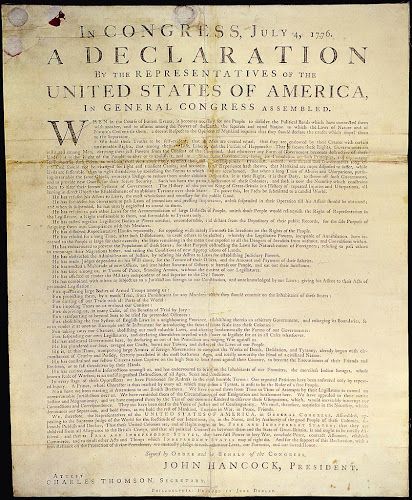Scene: Normal day in Mr. Duvall's US History class.
Mr. D: (above image is displayed for all students to see). What is this?
Jimmy: That's the flag Mr. D!
Mr. D: Whose flag, Jimmy?
Jimmy: The great State of Cali, of course.
Mr. D: Good. But what's kinda weird about this flag?
(Class grows silent. Some just tuned out; some thinking about it; some knowing the answer but afraid of risk an answer.)
Monica: (Raises her hand tentatively.). There's a bear on it.
Mr. D: Yes! There's a bear on it!
Anthony: Cuz, there's some big ass bears here. Ya! (Knuckle bumps one of his friends.). Mr. D, would you say that image is a boy bear or girl bear? And when them bears want to get busy, what do they do?
Mr. D: Anthony, once again, thanks for the inappropriate questions. I will defer to Mr. James, your biology teacher, on matters of the sexual behavior of bear-kind. For us, the question is why is there a bear on the state flag?
Tia: My dad drags us all over on big summer vacations....ah....every summer....last year we went to Hawaii. It was sooooo much fun. I met this Hawaiian guy. He had a chiseled six pack that made me...
Mr. D: Umm, Tia, could you save that for later and get to the question at hand.
Tia: Oh yeah. Sorry Mr. D, but he had beautiful blue eyes like you. Anyway, when I was twelve we spent a couple days in wine country, because my mom is a friggin lush, and went to an old Spanish mission and some other historical stuff. I have a pic at home--I'm wearing a cute sundress in it--but it was taken at the spot where the bear flag thingy was first raised.
Mr. D: Ok, good. Do you know why there's a bear on it.
Tia: The tour guide said that some Americans decided to take over Northern California and claim it for the United States. By the way that tour guide's shorts were way too short and he needed a membership to the tanning salon. Anyway, he said they chose the California Grizzly as their symbol.
Mr. D: Excellent Tia. It was called the Bear Flag Revolt and happened in 1846.
Monica: But wasn't there a big war. The Mexican American War?
Mr. D: Yes there was but the Revolt kind of kick started the whole thing.
Pablo: Yo, Mr. D, why didn't the homies pop a cap in that ass and stop that shit?
Maria: (president of the school's chapter of MECHA). The whole thing was an illegal seizure of power. That's why all the southwest US actually belongs to Mexico. The gringos came in and stole our land. La Raza's land.
Mr. D: Ok, one question at a time. Pablo, many Californios...
Anthony: Calihornios!? Hell most of us are horny. (Laughter from class)
Maria: Cali-for-nios, you dumbass.
Mr. D: Ok....raise your hands from now on. The Mexicans that settled in California called themselves Californios. And many of them were not sure what to think about the United States setting there. Some actually hoped the US would take the region because Mexico City was doing a poor job administering such a big country.
Maria: Wait Mr. D. You saying Mexicans wanted the Americans here?
Mr. D: Some did. The most influential Californio was probably General Mariano Vallejo and it was his chateau that was the site of the Bear Flag Revolt. Although he was technically under arrest by the Americans, he was also working with them behind the scenes.
Pablo: Man, the Latinos still comin' because you can make bank here. Mexico still a shithole...
Maria: Shut up, Pablo. This land is ours. It belongs to Mexico. Your people.
Pablo: Girl don't trip on me. I ain't Mexican. I'm Guatemalan.
Mr. D: Ok, do you two see that you both make legitimate arguments. In terms of legal ownership, that can be debated all day with no resolution.
Tia: To the winner goes the spoils, right Mr. D. By the way, did you get a haircut? It looks good.
Mr. D: Good point Tia. The victorious side, which is obviously the United States in this case, gets to make the rules and generally write the history.
Monica: So what happened Mr. D? I mean, if the Californios supported the revolt, then why weren't they a bigger part of the new state?
Mr. D: Good question. That might be the saddest part of the story. Those Californios that supported independence initially were included. For example, Vallejo was a member of the new state government and even has a city named after him, but most Californios lost everything. Few had written legal deeds to their land holdings, the property was just passed down from one generation to the next. When the railroads came in and Americans wanted more land the Californios lost out and had their land confiscated.
Maria: See, the whites are criminals.
Monica: Well on behalf of us whites, you're welcome for the opportunity to get an education and a decent paying job.
Mr. D: Timeout! Let's save this debate for another time. I'll end class with some trivia. One of the islands in the Bay Area is called Mare Island. It got its name when a ferry loaded with livestock for General Vallejo overturned crossing te bay. A prize white mare, which is a female horse, was feared lost. It was found a few days later, having swum to safety on a small unnamed island. It then became known as Mare Island.
Tia: Great discussion today Mr. D. Like me you got brains and good looks. Ciao.

















